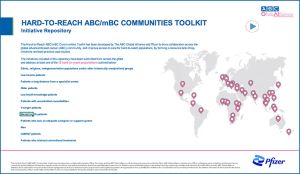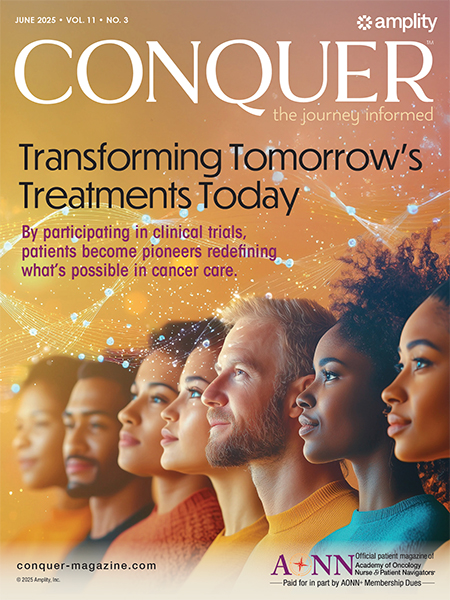Navigation Tools
Hard-to-Reach ABC/mBC Communities Toolkit
Optimizing Bispecific Antibody Therapy in Multiple Myeloma: A Resource Guide for Nurse and Patient Navigators
The therapeutic landscape of multiple myeloma (MM) has undergone a remarkable evolution over the past 2 decades. The development and application of novel agents and new generations of drugs, such as proteasome inhibitors, immunomodulatory drugs, and monoclonal antibody–based therapies, have resulted in improved prognosis and extended survival of patients with MM. Although these therapeutic advances are opportune and transformative, they add complexity to the MM clinical algorithms.
This resource guide is a review of bispecific antibodies, one of the new therapies currently being studied in clinical trials for patients with relapsed/refractory MM (RRMM), and best practices for oncology nurses and nurse and patient navigators, social workers, care coordinators, and advanced practice providers in supporting patients with RRMM who may be eligible for bispecific antibody–based treatment.
Navigating Multiple Myeloma: The Critical Importance of the First 90 Days
Navigating Chronic Lymphocytic Leukemia: The Critical Importance of the First 90 Days
CAR T-Cell Therapy: Implications for Navigation Practice
Hematology Navigation 101
Navigation Tracking Sheet for Weekly Rounds
Cancer Care Coordination Questionnaire for Patients
Provider Education on Patient Navigation
AONN+ Navigation Metrics Superheroes
Thank You to Our Corporate Sponsors and Alliance Partners!

Major Corporate Sponsor

Patron Corporate Sponsor

Patron Corporate Sponsor

Patron Corporate Sponsor

Industry Relations
Council Member

Industry Relations
Council Member

Industry Relations
Council Member

National Alliance Partner

National Alliance Partner

National Alliance Partner

National Alliance Partner

National Alliance Partner

National Alliance Partner
Privacy Notice | Terms of Use
© 2009- DBA AONN+ Academy of Oncology Nurse & Patient Navigators® | PO Box 357387, Gainesville, FL 32635-7387 |
AONN+ DBA AONN+ is a 501(c)(6) organization under federal tax guidelines. AONN+ Foundation for Learning, Inc. a 501(c)(3) organization under federal tax guidelines.
AONN+ Advantage, LLC, a wholly owned subsidiary of AONN+.



